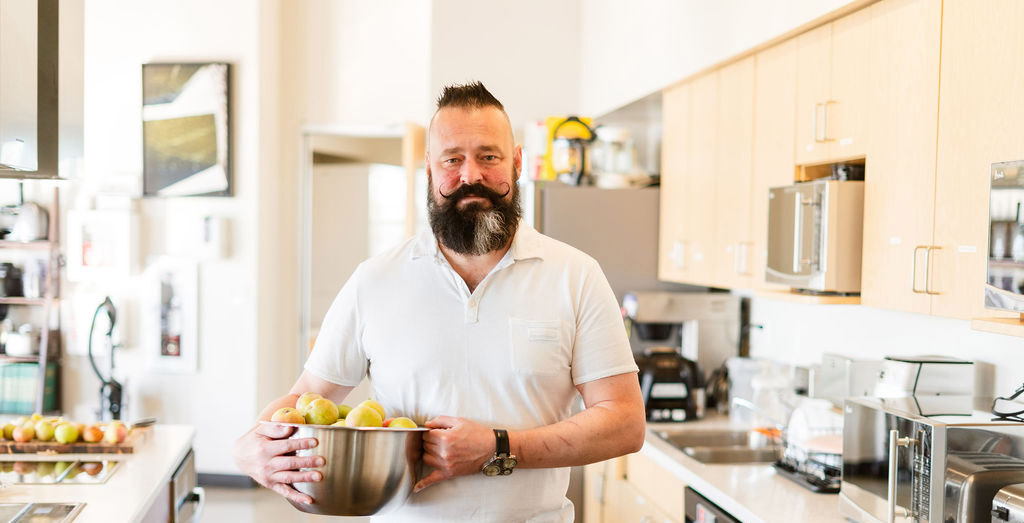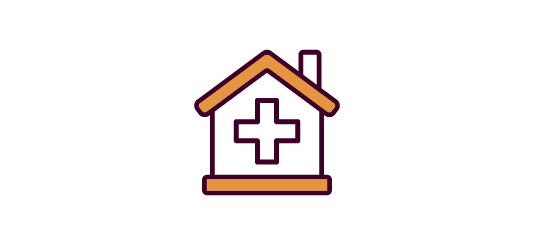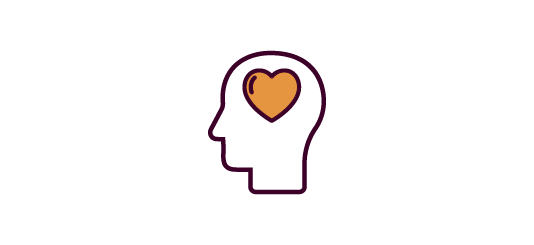How to Become a resident
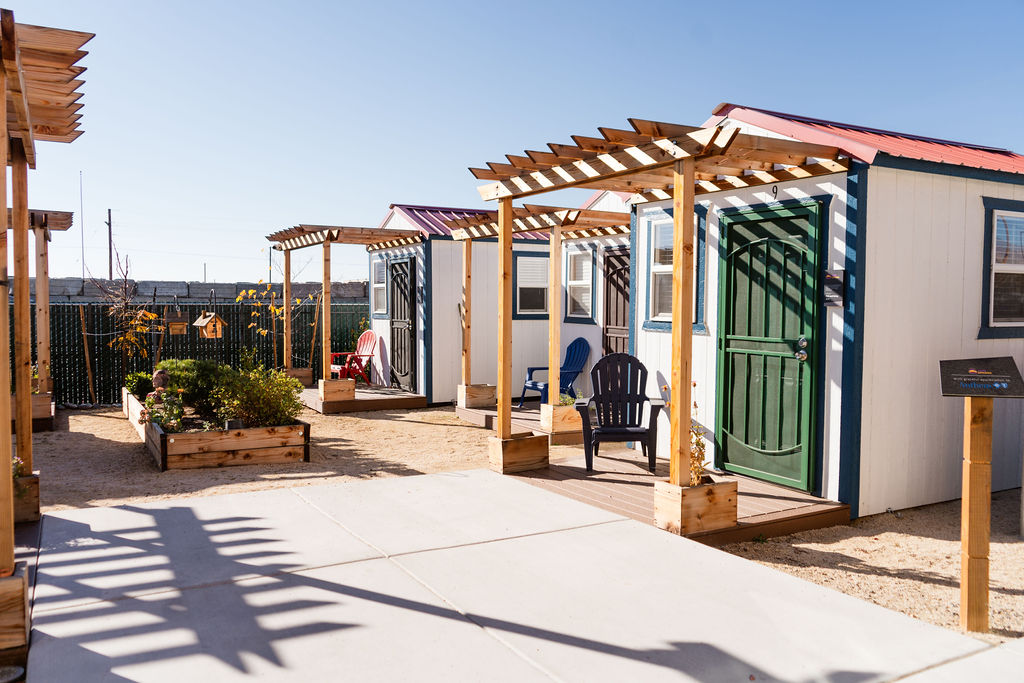
HOPE SPRINGS
1920 E 4th Street
Reno, Nevada 89512
Our Process
New Resident Orientation:
Thursday & Saturday (excluding holidays)
1pm – 2pm
All interested individuals will need to attend in-person orientation. Each person will be processed according to their orientation date. Consideration is given to completed applications and the urgency of the applicant’s current living situation. Admission to Hope Springs is not guaranteed.
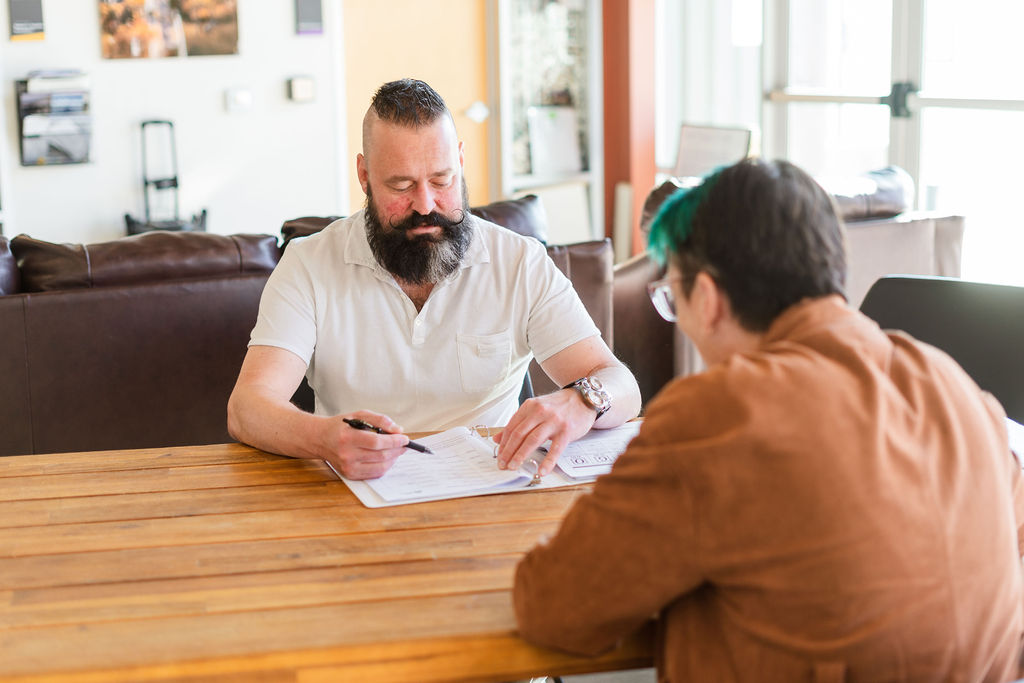
Waiting List
Once an individual has been approved for program admission, they will be notified and then placed on the waiting list. Approved applicants who are on the waiting list are required to contact Hope Springs staff regularly to confirm their continued interest, or whenever they have a change of address or phone number in order to remain active on the waiting list.
Rejection of applicants
Applicants may be rejected for any one or more of the following:
- Do not meet age criteria (18+ yrs old)
- Unstable medical/psychiatric/chemical conditions
- History of violence or violent felony conviction
- Sex offenders
- Unable to independently complete activities of daily living (ADL), including community chores
- Are not actually homeless
- Unable or unwilling to adhere to the program’s Code of Conduct
- Pending criminal charges or active temporary protection order (TPO)
- Providing false information or failure to provide required information
- Incomplete application process
Steps for enrollment
- Attend on-site orientation held weekly on Thursdays and Saturdays at 1pm (excluding holidays)
- Complete an in-person admission screening interview with a Peer Support Specialist
- Complete an in-person medical screening at HOPES Clinic
- Complete an in-person interview with a Hopes Springs Therapist
- Be placed on the waitlist or diverted to another program
- Check on waiting list status with Hope Springs staff weekly
- Move in when notified by Staff that we have an available tiny house
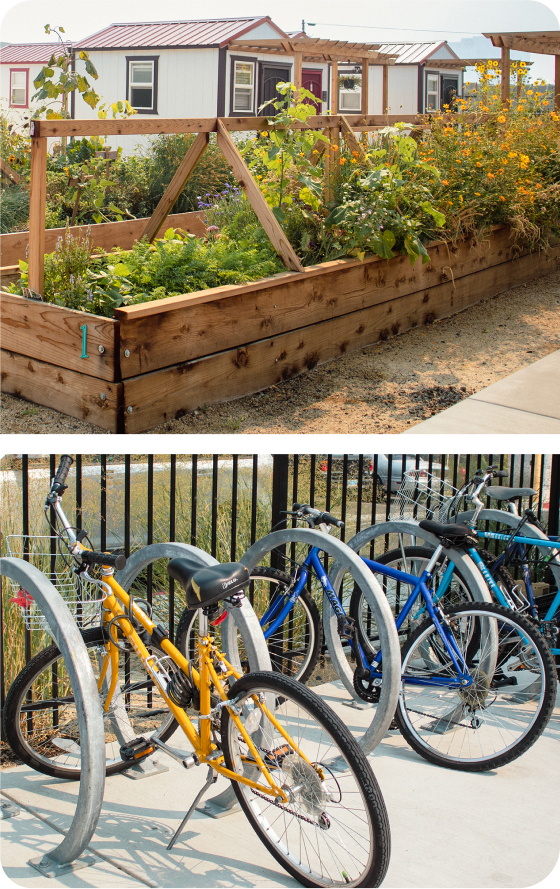
LIVING at Hope springs
Occupancy: Limited to one person, one pet, and one vehicle per unit.
Program length: Maximum stay, six months
Program Requirements
- Mandatory behavioral health groups and therapy sessions
- Weekly meetings with staff members
- Daily check-ins with staff
- No violence
- No non-prescription drugs or alcohol on-site
- No pornography or gambling on-site
- No weapons on-site
- Single Room Occupancy – no overnight guests.
- Maintain a clean and hygienic environment
- Be a part of the Hope Springs community
Our Promise to Residents
- Staff will be well trained and competent in their roles.
- Residents will have on-site access to staff seven days a week during business hours.
- Residents will be supported in their journey to sobriety.
- Staff will treat residents with respect.
- Staff will be supportive of each resident’s goals.
- Staff will promote safety and kindness.
Comprehensive wrap-around care
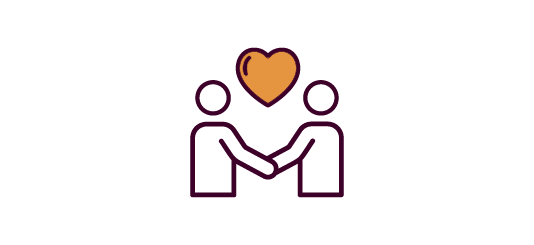
Intensive Case Management
Using a team approach, Hope Springs provides Case Management that supports each resident throughout their stay. The goal of Hope Springs Case Management is to help clients achieve an optimum quality of life by developing care plans, enhancing life skills, addressing health and mental health needs, engaging in meaningful activities, and building social and community relations. Hope Springs residents meet with their case manager weekly with the ultimate goal of securing sustainable income and affordable permanent housing by the end of their six-month stay.
Addiction is a treatable, chronic medical disease involving the brain, genetics, the environment, and individual life experiences. Our Medication Assisted Treatment (MAT) program uses FDA-approved medications to treat substance use disorder and support recovery. MAT is a combination of medication and behavioral therapy. It is an effective, evidenced-based treatment option for individuals with alcohol and opioid use disorders. Our whole-patient, team approach helps provide Hope Springs residents with the tools needed for long-term recovery and success.
Intensive Outpatient Program (IOP) is designed to address emotional issues, substance use, and trauma. This program provides Hope Springs residents a level of care between traditional outpatient therapy and inpatient hospitalization. IOP enrollees attend individual therapy and group therapy sessions that are tailored to meet each patient’s needs three times a week, for 8-12 continuous weeks.
Healthy Money Habits
Healthy Money Habits (HMH) is a free program available to Hope Springs residents. We work with residents to help them stabilize their finances to improve their overall health and well-being. Using financial education and financial coaching, HMH addresses the connection between health and finances, decreasing negative health outcomes and stress due to financial problems.
Hope Springs residents are provided with mental health services utilizing our team of therapists who are trained in trauma-informed, patient-centered care, as well as harm reduction, substance use disorders, suicidal ideations, and overall psychological well-being. Hope Springs residents meet with a therapist weekly (or more frequently if needed) throughout their stay to move toward their defined goals.
All Hope Springs residents receive a thorough medical screening at HOPES Clinic prior to program entry. This screening process is designed to identify problems early on when they may be easier to treat. It may also identify serious medical conditions early, even before symptoms appear. Knowledge is power and screening allows patients to make informed choices about their health.
Leveling Up Program
PURPLE
New residents spend the first eight weeks attending classes, meetings, and other orientation events (see program requirements), including daily and weekly check-ins. They are assigned daily chores, attend Health Money Habits classes, order any missing vital documents, and schedule routine medical appointments such as dental, vision, and specialty care.
ORANGE
During the second eight weeks, residents continue to do the activities of the Purple Level, as well as securing sustainable income and attending scheduled medical appointments.
GOLD
In the final eight weeks of the program, residents continue to attend classes and meetings, complete daily chores, maintain steady income, and concentrate their search for long-term permanent housing.
GRADUATION
After successfully completing all three levels, residents graduate and move out of their tiny home into a home of their own. They may bring the furniture and furnishings from their tiny home to their new home.
FREQUENTLY ASKED QUESTIONS
Can Hope Springs residents have pets?
Yes. There is a limit of one pet permitted per resident. All pets must be current on vaccinations.
Can Hope Springs residents have a car?
Yes. Each resident is permitted one vehicle. All vehicles must be registered, insured, and drivable.
Does Hope Springs have vaccine and health requirements?
Yes. Residents must get a health screening and be medically cleared of any communicable diseases.
Can Hope Springs residents have medical equipment?
Hope Springs can not accommodate electric wheelchairs or oxygen concentrators.
How does Hope Springs support residents’ transportation needs?
Uber Health may be used for transportation to medical appointments to the HOPES Clinic and bus passes may be given for important appointments.
Can residents come and go from Hope Springs as they wish?
Yes. However, after 48 hours, if a resident remains unaccounted for, they will be removed from the program and their unit will be closed.
How long does admission to Hope Springs typically take?
The admission process takes about one month.
